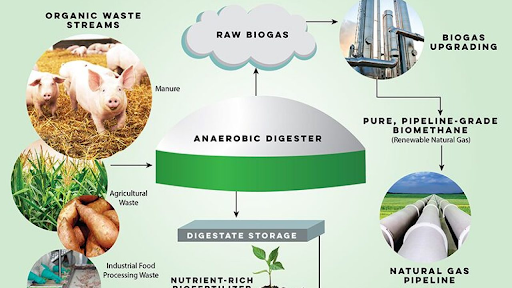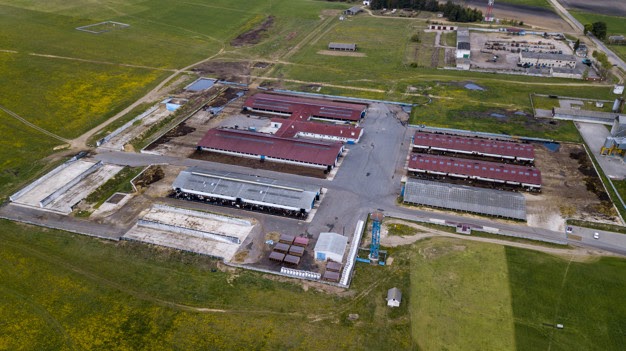Worldwide interest in renewable energy sources, mostly on biogas, is gathering momentum as more companies and industries are setting up biogas energy solutions to produce power. To get a broader perspective of what biogas is suitable for and why businesses are moving towards these energy solutions, we have created this list explaining the advantages and uses of biogas on agricultural and big farm industries.
What is Biogas?
Why do farms and large-scale companies need biogas? That is because opportunities for biogas energy solutions are growing. Biogas is one of the most sought-after renewable energy resources as it can power homes or areas in a highly efficient manner. This type of renewable energy resource is produced from organic matter decomposition through anaerobic bacteria process. It is composed principally of carbon dioxide (40%) and methane (60%), which is comparable to natural gas with a (99%) of methane.
Residues and Energy Crops for Biogas Production

Residues. Would you believe that depositions can be something useful? Yes! From farms’ agricultural activities, it can generate many residues that can be turned to biogas. Residues and manures from livestock operations can be used to produce energy without harming the soil and ultimately reduce disposal costs and pollution. Other organic materials, such as waste products include:
- Slurry
- Manure
- Vegetable waste
- Glycerol
- Palm oil mill effluent
Energy Crops. Agricultural biogas plants that are found on farms can generate biogas-a renewable fuel sources through cogeneration and combined heat and power. These energy crops are ensilaged and stored in clamps or hoppers and fed into the digester throughout the year. Some examples of energy crops that are present on most farms include:
- Maize
- Grass
- Wheat
- Rye
- Triticale
Biogas Energy Sources On Farms
Going into biogas way will enable agricultural industries the following:
Energy stability.
Alternatively, biogas can be processed into hydrogen or methanol, which can then be chemically converted to electricity in a highly efficient fuel cell. Fuel cells can be large enough to power an entire farm or small enough to power a car or tractor, reducing your exposure to fluctuating energy prices
Protection of Farm’s Land.
Livestock manures may spread foul smells, and some may overflow-toxic liquids to drain into underground water sources. Consequently, biogas can solve this concern. Turning manures and farm’s residues can improve and protect the soil, making it safe for plants and animals. Another benefit that farms could have is the deactivation of harmful bacteria like pathogens and parasites, reducing water-borne diseases. Biogas energy solutions will lead to environmental improvement in sanitation and hygiene.
Save costs, reduce emissions.
Biogas energy solutions significantly curb the greenhouse effect by reducing emissions of harmful chemicals in the environment. Some businesses and companies have biogas plants as it can lower methane emissions by capturing toxic gas and, in return, using it as fuel. It reduces reliance on the use of fossil fuels, such as oil and coal.
How Do We Create Value For You?
Reurasia’s biogas energy solutions can deliver significant cost savings while giving large-scale agricultural industries better energy stability while reducing electricity prices. We can help you with your renewable energy requirements to combat climate change and turn waste into valuable energy and agricultural resource.
Request for an estimate so you will have an estimation of the costs and benefits that your anaerobic digestion project can generate!


